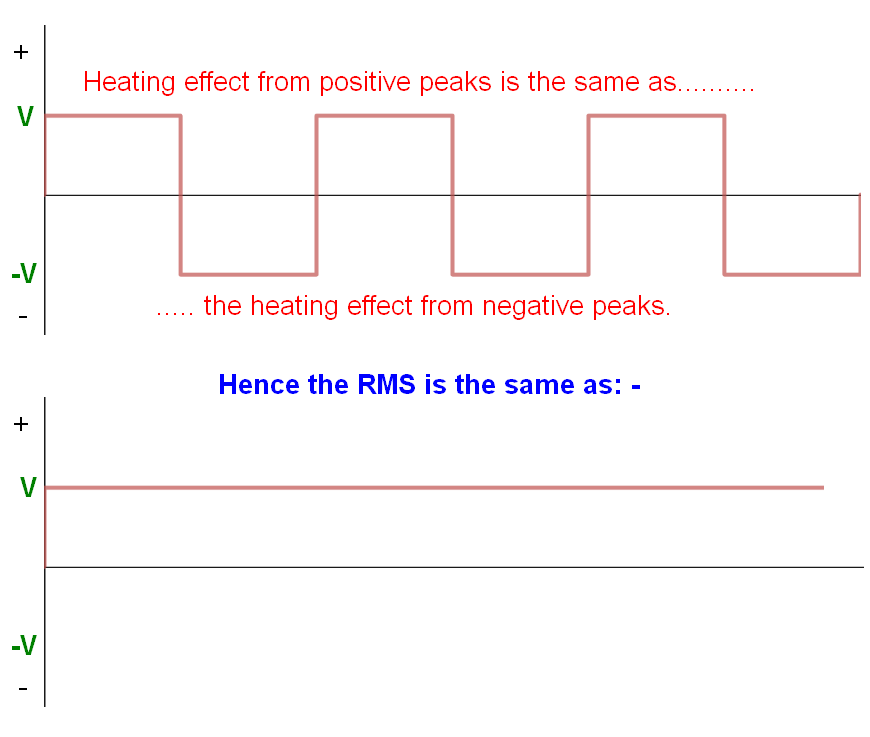I have a circuit with AC square wave at 10V and 4 Hz. There is only a single resistor of 1000 ohm in the circuit. I would like to calculate the rms current and also the peak to peak current of this circuit.
-
1\$\begingroup\$ seems like a school assignment ... please show your work that you have done so far \$\endgroup\$– jsotolaCommented Mar 5, 2018 at 7:33
-
\$\begingroup\$ It is not a school assignment. Am on DIY circuit. Am new to electronics \$\endgroup\$– iamnamrudCommented Mar 5, 2018 at 7:34
-
1\$\begingroup\$ Draw waveforms, search on how to find rms and average value of any signal \$\endgroup\$– DeepCommented Mar 5, 2018 at 8:31
-
\$\begingroup\$ @iamnamrud: Have a look at my answer to electronics.stackexchange.com/questions/356562/ac-effect-value/… and see if that helps. \$\endgroup\$– TransistorCommented Mar 5, 2018 at 8:54
2 Answers
I have a circuit with AC square wave at 10V and 4 Hz. There is only a single resistor of 1000 ohm in the circuit. I would like to calculate the rms current and also the peak to peak current of this circuit.
- So calculate RMS current based on the peak voltage of 10 volts and 1000 ohms.
- The peak current is also the same as the RMS current
- The peak to peak current is twice the peak current.
The peak can be found by using:
$$\text{V}_\text{R}=\text{V}_\text{in}=\text{I}_\text{R}\cdot\text{R}=\text{I}_\text{in}\cdot\text{R}\tag1$$
And the RMS can be found by finding:
$$\frac{1}{100}=\overline{\text{I}}_\text{R}=\overline{\text{I}}_\text{in}=\sqrt{\frac{1}{\frac{1}{4}-0}\int_0^\frac{1}{4}\text{I}_\text{R}^2\space\text{d}x}=\sqrt{\frac{1}{\frac{1}{4}-0}\int_0^\frac{1}{4}\text{I}_\text{in}^2\space\text{d}x}=$$ $$\sqrt{\frac{1}{\frac{1}{4}-0}\int_0^\frac{1}{4}\left(\frac{\text{V}_\text{R}}{\text{R}}\right)^2\space\text{d}x}=\sqrt{\frac{1}{\frac{1}{4}-0}\int_0^\frac{1}{4}\left(\frac{\text{V}_\text{in}}{\text{R}}\right)^2\space\text{d}x}\tag2$$
-
\$\begingroup\$ The frequency doesn't matter? \$\endgroup\$ Commented Mar 5, 2018 at 9:09
-
\$\begingroup\$ @iamnamrud It does, where do you think that the \$\frac{1}{4}\$ comes from?! \$\endgroup\$ Commented Mar 5, 2018 at 9:10
-

